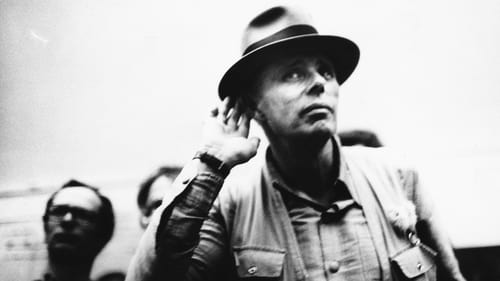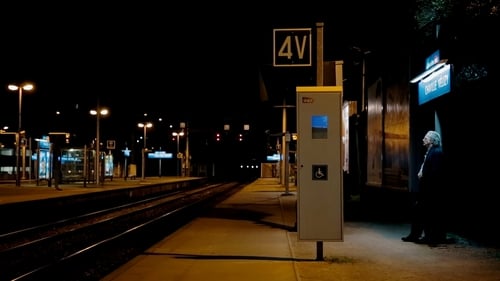Stefan Krumbiegel
Рождение : 1964-01-01, Stuttgart, Baden-Württemberg, Germany

Editor
How do the well-meaning and highly educated men and women of America’s foreign policy elite, dreaming of doing good in the world, so often find themselves presiding over disastrous wars and genocides? Master filmmaker Dror Moreh takes us deep inside the three decades of American foreign policy since the fall of the Berlin Wall, a period of almost constant war and mass killing

Editor
A Boarding School offers rare access inside an Islamic boarding school, and an insight into a traditional educational system that fosters good character-building based on a peaceful religious teaching that has been practiced in Indonesia for centuries. Raising their students to respect and to have compassion towards others despite their differences, these schools are Indonesia’s last defense in the face of today’s rising extremism.

Dramaturgy
Janette is terminally ill and wants to die in a dignified way but this is not permitted under British law. She refuses to wait for death in unbearable pain so she opts for a physician-assisted suicide in Switzerland. Before departing on the final journey she has to explain her intention to the family members and close friends.

Editor
В случае с искусственным интеллектом вы высказываетесь четко и ясно — такой совет дают Чаку, когда он забирает свою партнершу-работа Гармонию прямо с фабрики. В Токио бабушке дарят милого работа Перчика, чтобы она чувствовала себя менее одинокой. Как работы и искусственный интеллект изменят нашу жизнь?

Editor
Антипсихиатрический Социалистический коллектив пациентов (СКП) был основан в Гейдельберге в 1970 году и объяснял страдания отдельного человека капиталистической структурой общества. Всё началось с эксперимента в групповой терапии, которую вёл доктор Вольфганг Губер с пациентами психиатрической клиники. Он включал чтение Гегеля и индивидуальную агитацию, но впоследствии стал радикальным. Это закончилось уголовным преследованием его членов, некоторые из которых ушли в подполье, вступив в ряды "Фракции Красной Армии".

Editor
«Дрис» — это очень личный портрет дизайнера Дриса ван Нотена. Впервые в жизни ван Нотен позволяет режиссеру и оператору вблизи наблюдать не только творческий процесс, но и пускает их в свою личную жизнь. Целый год Райнер Хольцемер подробно документировал каждый шаг создания четырех коллекций Дриса: то, как он выбирает ткани, работает над силуэтами и принтами. Хольцемеру также удалось стать свидетелем подготовки к показам, которые сами по себе стали культовыми для мира моды. Картина предлагает зрителю увидеть частную и творческую жизнь мастера, который вот уже более 25 лет остается независимой величиной в современном мире глобализированной моды. Целый год Райнер Хольцемер следовал за ван Нотеном, собрав за это время невероятный объем информации об одном из самых закрытых героев экстравертного мира моды.

Editor
A documentary about the 20th century German sculptor and performance artist Joseph Beuys.

Editor
In the sixties, Peter Handke was one of the first to show how the business works: the writer as angry young man and pop star of the literary scene. As soon as he was on the bestseller lists, he turned his back on the hype. For many years, he has lived and worked in his house in a Parisian suburb, more quietly and more hospitably. Peter Handke's precise, free gaze becomes perceptible in his texts, his conversations, the cosmos of his notebooks.

Editor
1942, and a spectacular wartime birth in the depths of winter: a young russian nurse unexpectedly goes into labour and, all alone and in freezing temperatures, gives birth to her daughter Tamara in a field on the banks of the Volga. The most personal film to date from co-directors Tamara Trampe and Johann Feindt is dedicated to Tamara's own family history. The search for her unknown father who, as a russian officer, made the young nurse pregnant, is complicated by the fact that her mother has never come to terms with her wartime trauma and worn family photos only seem to show happy-go-lucky life before the war. But the director won't give up so easily and, through a mixture of personal childhood recollections and conversations with relatives and former nurses who were on the front in Ukraine, she puts together the pieces of the puzzle.

Editor
Lullabies are our first connection to the world – a universal experience we all share, yet it remains deeply personal. "Can you recall a song that your mother would sing for you to fall asleep?" is the question Tamara Trampe and Johann Feindt ask people they meet in the streets of Berlin.

Editor

Editor
What does a baby's cry have in common with the echo of a mountain yodler, and what connects the head tone of a Tuvin nomad with the stage show of a vocal artist? The answer is: THE VOICE. Against a background of powerful alpine vistas and modern city landscapes, "heimatklänge" enters the wondrous sonic world of three exceptional Swiss vocal artists. Their universe of sound extends far beyond what we would describe as singing. In their engagement with local and foreign traditions, the powerful mountain landscape becomes a stage as do the landscapes and sonic backdrops of modern life.

Editor
Along with several courageous psychiatrists and their clients, the author sets out to film a documentary road movie that takes him to Switzerland, Europe, and the U.S. On their travels in mobile homes, they explore the depths of the human psyche in search of answers to the question: What is the human mind and how does it behave in psychotic extreme situations?

Editor
Documentary about the war in Chechnya.

Makeup Artist
Set in the early '80s, a time when a new wave of leftist political consciousness and activism had swept German youth (and was just about to disappear as quickly as it arrived), this satiric comedy follows a young couple, Ingo (Hans-Jochen Wagner) and Nadja (Valerie Koch), as they travel to Austria for a weekend of skiing near her parent's luxurious chalet. While Ingo and Nadja have an open relationship, he thinks its time that they commit to one another exclusively, and is hoping this weekend will convince her this is a good idea. However, their privacy is interrupted when several guests arrive -- friends of Nadja's brother Knut (Ingo Haeb), a noted political activist, who, unbeknownst to her, has also planned a ski weekend. As the guests await Knut's arrival, they get the unpleasant news that he's been arrested during a demonstration; several propose that they should come to his aid, while the majority decide instead to go skiing as a way to pay tribute to his commitment to the cause.

Costume Design
Set in the early '80s, a time when a new wave of leftist political consciousness and activism had swept German youth (and was just about to disappear as quickly as it arrived), this satiric comedy follows a young couple, Ingo (Hans-Jochen Wagner) and Nadja (Valerie Koch), as they travel to Austria for a weekend of skiing near her parent's luxurious chalet. While Ingo and Nadja have an open relationship, he thinks its time that they commit to one another exclusively, and is hoping this weekend will convince her this is a good idea. However, their privacy is interrupted when several guests arrive -- friends of Nadja's brother Knut (Ingo Haeb), a noted political activist, who, unbeknownst to her, has also planned a ski weekend. As the guests await Knut's arrival, they get the unpleasant news that he's been arrested during a demonstration; several propose that they should come to his aid, while the majority decide instead to go skiing as a way to pay tribute to his commitment to the cause.

Production Design
Set in the early '80s, a time when a new wave of leftist political consciousness and activism had swept German youth (and was just about to disappear as quickly as it arrived), this satiric comedy follows a young couple, Ingo (Hans-Jochen Wagner) and Nadja (Valerie Koch), as they travel to Austria for a weekend of skiing near her parent's luxurious chalet. While Ingo and Nadja have an open relationship, he thinks its time that they commit to one another exclusively, and is hoping this weekend will convince her this is a good idea. However, their privacy is interrupted when several guests arrive -- friends of Nadja's brother Knut (Ingo Haeb), a noted political activist, who, unbeknownst to her, has also planned a ski weekend. As the guests await Knut's arrival, they get the unpleasant news that he's been arrested during a demonstration; several propose that they should come to his aid, while the majority decide instead to go skiing as a way to pay tribute to his commitment to the cause.

Editor
Set in the early '80s, a time when a new wave of leftist political consciousness and activism had swept German youth (and was just about to disappear as quickly as it arrived), this satiric comedy follows a young couple, Ingo (Hans-Jochen Wagner) and Nadja (Valerie Koch), as they travel to Austria for a weekend of skiing near her parent's luxurious chalet. While Ingo and Nadja have an open relationship, he thinks its time that they commit to one another exclusively, and is hoping this weekend will convince her this is a good idea. However, their privacy is interrupted when several guests arrive -- friends of Nadja's brother Knut (Ingo Haeb), a noted political activist, who, unbeknownst to her, has also planned a ski weekend. As the guests await Knut's arrival, they get the unpleasant news that he's been arrested during a demonstration; several propose that they should come to his aid, while the majority decide instead to go skiing as a way to pay tribute to his commitment to the cause.














